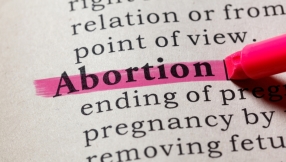Conservative Anglican churches have bucked the trend of decline to show an increase in attendance over the past five years.
The Church of England as a whole has seen a seven per cent drop in the number of people at weekly services since 2010. But those churches with more strict teaching on issues such as the infallibility of the Bible, women priests and same sex marriage report a dramatic increase in regular attendance.

Churches with ties to the conservative grouping Reform grew in average weekly attendance at a rate of between three and four per cent year on year for the past five years. This compares to a decline of between one and two per cent yearly across the wider CofE.
They also have typically larger and more youthful congregations. The average weekly attendance for Reform-linked congregations was 99 compared to 40 in the CofE as a whole and only 18 per cent were aged over 70 compared to 30 per cent in the wider Church.
Reform is a conservative evangelical grouping within the Church of England that strongly opposed the introduction of women bishops in 2014. They also teach about the "infallibility and supreme authority of 'God's Word written'" as the only tool for resolving arguments about Christian teaching.
They also emphasise the "wrongness" of sex outside heterosexual marriage particularly in "homosexual forms".
ReNew is an annual conference organised by Reform alongside Anglican Mission in England and Church Society – two other conservative groups.
The conference has similar teaching in opposing women having a role in church leadership and in understanding the Bible in the "literal sense as the inspired and unerring Word of God".
Susie Leafe, director of Reform, told Christian Today: "Without these churches the collapse of the Church of England would be even more noticeable."
Reform asked churches with clergy who were members of Reform or who had attended their ReNew conference to report their statistics every year for the last five years. More than 300 churches contributed to the results that support research from Canada showing theologically conservative churches grow faster than those with a more liberal leaning.
Leafe said Reform's member churches were spread across the UK with different neighbourhoods and congregations. She added they varied in style from the traditional to the charismatic. "What the leadership of these churches have in common is a belief that the Bible is our authority in matters of life and doctrine and the teaching we find in its pages about Jesus Christ is reliable, coherent, challenging and life transforming," she said.
Each church did not respond every year so the data is not complete, but offers a clear picture of growth in the midst of steady decline.
Reform's statistics back up research to be published in next month's Review of Religious Research that suggests churches with strict teaching on hell and a literal reading of the Bible grow faster than more liberal churches.
"Conservative believers, relying on a fairly literal interpretation of scripture, are 'sure' that those who are not converted to Christianity will miss their chance for eternal life," said David Haskell, the lead researcher. "Because they are profoundly convinced of [the] life-saving, life-altering benefits that only their faith can provide, they are motivated by emotions of compassion and concern to recruit family, friends and acquaintances into their faith and into their church.
"This desire to reach others also makes conservative Protestants willing to implement innovative measures including changes to the style and content of their worship services."













